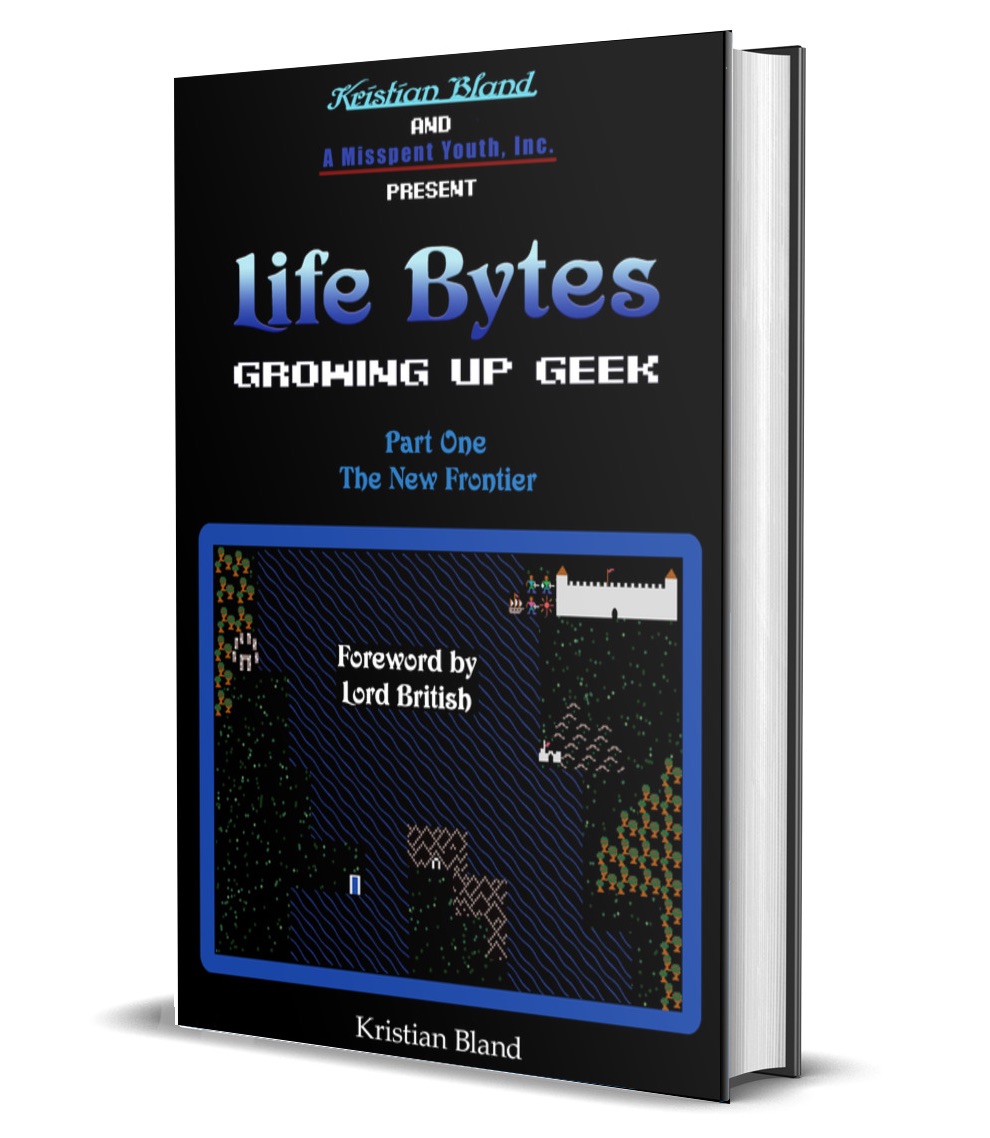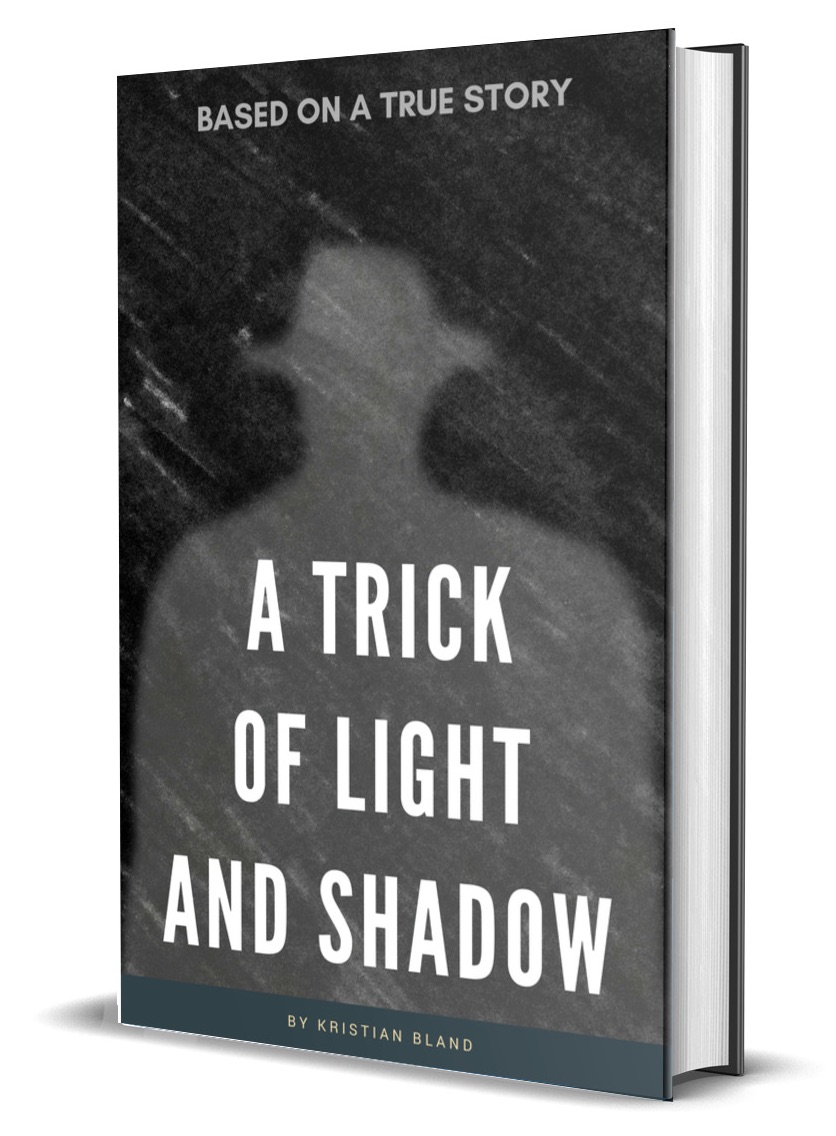Posted on December 17, 2009
The Littlest Angel, The Biggest Waste Of Time
 In an effort to get Trey excited about the holiday season, we’ve taken to the practice of watching a Christmas movie with him every night, an endeavor which has proven to alternate between being mostly rewarding and occasionally infuriating, depending on the film. When the nightly movie is something like the 1964 TV special Rudolph the Red-Nosed Reindeer or 1969’s Frosty the Snowman, I can easily slip into the long-ago mindset of my younger self by watching Trey gaze at the screen with the same childlike wonder I once had myself many, many moons ago. The old pangs of Nostalgia kick in and from the first moment a Burl Ives-shaped snowman waddles onto the screen to tell the tale of a red-nosed reindeer named Rudolph, or when the familiar rasp of Jimmy Durante’s throatnotes cut through the air, invoking the spirit of Frosty like husky musical pleas to the ancient jotunn goddess Skadi, my eyeballs are glued to the screen. There’s something magical in those old television specials that eludes modern filmmakers’ efforts to recapture – an intrinsic something that makes them stand apart as classics in a field of abject failures. It is with these sorts of lesser-than dregs of abysmal filmic failure that my Christmas joy is transformed into quiet misery and inescapable pain. Case in point: the Delaney & Friends Cartoon Productions 1997 offering titled The Littlest Angel.
In an effort to get Trey excited about the holiday season, we’ve taken to the practice of watching a Christmas movie with him every night, an endeavor which has proven to alternate between being mostly rewarding and occasionally infuriating, depending on the film. When the nightly movie is something like the 1964 TV special Rudolph the Red-Nosed Reindeer or 1969’s Frosty the Snowman, I can easily slip into the long-ago mindset of my younger self by watching Trey gaze at the screen with the same childlike wonder I once had myself many, many moons ago. The old pangs of Nostalgia kick in and from the first moment a Burl Ives-shaped snowman waddles onto the screen to tell the tale of a red-nosed reindeer named Rudolph, or when the familiar rasp of Jimmy Durante’s throatnotes cut through the air, invoking the spirit of Frosty like husky musical pleas to the ancient jotunn goddess Skadi, my eyeballs are glued to the screen. There’s something magical in those old television specials that eludes modern filmmakers’ efforts to recapture – an intrinsic something that makes them stand apart as classics in a field of abject failures. It is with these sorts of lesser-than dregs of abysmal filmic failure that my Christmas joy is transformed into quiet misery and inescapable pain. Case in point: the Delaney & Friends Cartoon Productions 1997 offering titled The Littlest Angel.
This unfortunate version of The Littlest Angel is a gross retelling of the original 1946 children’s book of the same name by Charles Tazewell. If you’re familiar with the song The Little Drummer Boy, then you’re already familiar with the basic storyline of the book. As in The Little Drummer Boy, a child gives a modest gift to the baby Jesus that the child believes inferior but that the Lord ultimately embraces as the most worthy. Replace the drummer boy with an angel, and you have the basic outline of The Littlest Angel. (Interestingly, The Little Drummer Boy was originally titled Carol of the Drum and was written by Katherine Davis in 1941, but wasn’t popularized until a new arrangement was recorded by the Harry Simeone Chorale in 1958. Given the similarities between the two stories and the fact that The Littlest Angel was first published five years after Carol, but twelve years before Drummer brought the story into the consciousness of the general public, I’ll let you decide who ripped of whom.) The Littlest Angel first came to popular attention as a Hallmark Hall of Fame production in 1969 starring Jody from Family Affair along with Herman Munster, Felix Unger and the “The Hi-De-Ho Man” himself, Mr. Cab Calloway. I haven’t seen this version, but I’d be willing to bet an original signed recording of Minnie the Moocher that it beats the angel-lovin’ pants off of the horrible twenty-five minute cartoon I endured earlier this week.
The only version of The Littlest Angel that appears in the Netflix “Watch Instantly” catalog is the shameful production distributed by Family Home Entertainment (f.h.e.) that Brittany stumbled upon while browsing the Children’s section. Given that the production company behind this anemic version of the story is credited with only three other films, I can’t help but question f.h.e.’s decision to distribute this ghastly piece of animated crap. Don’t get me wrong, though. Family Home  Entertainment was responsible for distributing (on VHS and Betamax) some of the most cherished animated fiction from my childhood with shows like Transformers, ThunderCats, and G.I. Joe. Without f.h.e., I wouldn’t have ever known the bitter pain of watching Optimus Prime’s glowing blue eyes dim and go out as he died, or been permanently scarred beyond all reason while I watched in horror as his signature red and blue paint job inexplicably faded into the deathly hues of a concrete grey as he slipped beyond the veil of whatever passes for a giant transforming robot’s mortality. It was heavy stuff for a nine-year-old, and a film that my friends and I considered high art at the time – and it did it all without the emotionally uplifting aid of Megan Fox’s jiggling boobies. (Take that, Michael Bay!) Still, even taking all of my childhood goodwill into account, I can’t help but hate f.h.e. for distributing The Littlest Angel, and I may never forgive them. Not ever!
Entertainment was responsible for distributing (on VHS and Betamax) some of the most cherished animated fiction from my childhood with shows like Transformers, ThunderCats, and G.I. Joe. Without f.h.e., I wouldn’t have ever known the bitter pain of watching Optimus Prime’s glowing blue eyes dim and go out as he died, or been permanently scarred beyond all reason while I watched in horror as his signature red and blue paint job inexplicably faded into the deathly hues of a concrete grey as he slipped beyond the veil of whatever passes for a giant transforming robot’s mortality. It was heavy stuff for a nine-year-old, and a film that my friends and I considered high art at the time – and it did it all without the emotionally uplifting aid of Megan Fox’s jiggling boobies. (Take that, Michael Bay!) Still, even taking all of my childhood goodwill into account, I can’t help but hate f.h.e. for distributing The Littlest Angel, and I may never forgive them. Not ever!
What makes the movie so damned awful has nothing to do with the cheap animation, although it is suitably amateurish and just plain bad. It’s not even the lamentable voice acting, even though Paulina Gillis basically just rehashes her work on the Super Mario Brothers Super Show by voicing the littlest angel as a slightly masculinized version of Kootie Pie Koopa. No, what makes The Littlest Angel so abysmal is that the basic premise itself is downright hideous. Whereas The Little Drummer Boy innocently features a little boy who wants to play his drum for Jesus, The Littlest Angel is all about a freshly-dead four-year-old boy who is forced to romp about the hallowed halls of a Heaven that is as filled with iniquity as it is with snobbery. All of the other angels are depicted as judgmental, arrogant asshats who are both condescending towards the littlest angel and disapproving of his very existence in their otherwise peaceful (yet oppressively duty-filled) afterlife.
To add insult to injury, the littlest angel is also terribly alone. And since, according to the film, he is the only child in all of Heaven, one can’t help but wonder what happens to all the other children of the world when they die. However, after watching the film and bearing witness to the virulent perdition it calls Heaven, I’m not sure who to feel more sorry for: the littlest angel  who is condemned to suffer illimitably as the only underclassman in a place that can be most accurately described as a divine middle school governed by a ruling clique of cruel and pernicious bullies, or the rest of the world’s dead children who are, presumably, either haunting their relatives back on Earth as ethereal specters or partying it up in Limbo with the rest of the troublemakers that didn’t qualify for a ticket on the fun-filled express train to an eternity of unyielding wretchedness. It’s a tough call.
who is condemned to suffer illimitably as the only underclassman in a place that can be most accurately described as a divine middle school governed by a ruling clique of cruel and pernicious bullies, or the rest of the world’s dead children who are, presumably, either haunting their relatives back on Earth as ethereal specters or partying it up in Limbo with the rest of the troublemakers that didn’t qualify for a ticket on the fun-filled express train to an eternity of unyielding wretchedness. It’s a tough call.
Not content to basically destroy the general perception most Christians have of Heaven, the film goes on to make things even worse. The littlest angel is depicted as a klutz of the highest magnitude and a tiny excuse for an angel who can’t even fly, and whose halo is a few sizes too big for his head. He’s constantly pissing off the other angels by accidentally bumping into them or disrupting choir practice, and generally behaves like – surprise – a child, right up until he is confronted by the Understanding Angel. (Yes, the Understanding Angel. And no, I’m not making this up.) The understanding angel gets the littlest angel to confess that he is unhappy in Heaven, although the revelation comes as little surprise to an audience who is already equally as unhappy for having endured the miseries of the film thus far. The understanding angel learns that the littlest angel misses a box he had back on Earth, a box in which he kept his most cherished childhood possessions. He confides to the understanding angel that, if he only had that box, he would be happy again and would start behaving like a good little angel. (It should be noted that the littlest angel never does anything that could be considered as ‘bad’ by any standard. Clumsy, yes. Inept at flying and halo use, certainly. Childish and playful, no doubt. But bad? Hardly.) The understanding angel characteristically understands, and the littlest angel is allowed to reclaim his box from Earth.
 Inside the box are simple items: some skipping stones, an egg, a dog collar and a seemingly immortal butterfly who comes fluttering out when the box is opened. The boy is ecstatic and, with his innate lack of talent somehow bolstered by his newfound enthusiasm for being dead, he starts acting like an ideal angel. He can suddenly fly properly, his halo stops falling off of his head, and he stops pissing everyone off. Everything is great, at least until God announces that he’s going to be popping a Jesus-shaped bun into Mary’s virginal oven…
Inside the box are simple items: some skipping stones, an egg, a dog collar and a seemingly immortal butterfly who comes fluttering out when the box is opened. The boy is ecstatic and, with his innate lack of talent somehow bolstered by his newfound enthusiasm for being dead, he starts acting like an ideal angel. He can suddenly fly properly, his halo stops falling off of his head, and he stops pissing everyone off. Everything is great, at least until God announces that he’s going to be popping a Jesus-shaped bun into Mary’s virginal oven…
The Heavenly Host is called upon to provide gifts for the new baby, although exactly how these ephemeral artifacts from the spirit realm will be transported to the physical realm of the Earth goes unexplained. All of the angels pile up various treasures and trinkets in the center of some sort of grand hall that eventually plays host to a giant, translucent Hand of God. The littlest angel frets over what to give the baby Jesus, so he goes to various angels asking for help, all of whom either turn him away immediately or simply dismiss him out of hand. Eventually, he settles on giving the only thing he has in his possession – his beloved box. So, he flies over to the big hall and plops his shabby wooden treasure chest of boyhood trinkets down on the floor amongst the other, much shiner presents. He is immediately ashamed.
 The other angels, being the vicious little sanctimonious bastards that they are, point at the pitiful gift and make fun of the littlest angel. The poor little guy is shamed and embarrassed and even terrified that his gift is worthless and that God will reject it. In fact, so filled with self-loathing is he that he soon speeds himself back to the treasure pile in an attempt to reclaim the gift before the Lord can see it. Of course, just before he gets there, a giant glowy hand appears and reaches for the box as the booming disembodied voice of God confirms that the littlest angel is too late. The Hand of God opens the box and all of Heaven holds its breath as the other angels await His reaction.
The other angels, being the vicious little sanctimonious bastards that they are, point at the pitiful gift and make fun of the littlest angel. The poor little guy is shamed and embarrassed and even terrified that his gift is worthless and that God will reject it. In fact, so filled with self-loathing is he that he soon speeds himself back to the treasure pile in an attempt to reclaim the gift before the Lord can see it. Of course, just before he gets there, a giant glowy hand appears and reaches for the box as the booming disembodied voice of God confirms that the littlest angel is too late. The Hand of God opens the box and all of Heaven holds its breath as the other angels await His reaction.
Naturally, God loves the gift because its contents are from the Earth and from men, both of which His Son is born to be King. The Lord is thusly pleased with the gift and proclaims it superior to all the rest. The littlest angel is redeemed and the other angels quickly fall in line and start pretending to like him again after God miraculously transforms the pathetic box into the giant, shimmering star that shines above Christ’s manger, signaling the birth of God’s Son. And with that, the film is over.
I shouldn’t think that I would have to go over all of the points concerning exactly why this movie is so awful, but I’ll point a few for you, anyway:
- In Christian theology, people do not become angels. It’s a common belief nowadays, but it’s nowhere in the doctrine of the church. It’s a comforting thought, to be sure, but it’s just not part of the official dogma and it never ceases to annoy the piss out of me when people pick and choose what bits of a religion they want to adopt. Your mileage may vary.
- During
 the scene with the understanding angel, the movie flashes back to the littlest angel’s life and clearly shows a stereotypical middle-American, two-story home. Somehow, probably through some unexplained supernatural and Godly folderol, the events of the movie take place about 2,000 years before and after the events of the movie. It makes a sort of sense that doesn’t to somehow conclude that a child born in the present could not only witness the birth of Christ, but also contribute to it by forming the fabled guiding star from his little wooden box – but such is the nature of God’s work, I suppose. Mysterious ways and all that.
the scene with the understanding angel, the movie flashes back to the littlest angel’s life and clearly shows a stereotypical middle-American, two-story home. Somehow, probably through some unexplained supernatural and Godly folderol, the events of the movie take place about 2,000 years before and after the events of the movie. It makes a sort of sense that doesn’t to somehow conclude that a child born in the present could not only witness the birth of Christ, but also contribute to it by forming the fabled guiding star from his little wooden box – but such is the nature of God’s work, I suppose. Mysterious ways and all that. - The littlest angel’s version of Heaven has within it someone called the Halosmith Angel. That’s right – a supernatural blacksmith who spends eternity making halos. That’s his job: manufacturing. In Heaven. For eternity. No unions, either.
- The angels are downright mean and, on at least one occasion, disturbingly prone to pedophiliac innuendo when one of three Patriarch Prophet Angels steeples his fingers conspiratorially and says, “I hope he has a celestial voice. We could use some new blood in the soprano section – if you know what I mean…” Creepy.
That’s all I have the stomach for right now. I was going to go into more detail concerning the theological shift that has taken place since the popularization of the notion that people become angels when they die, but I don’t have the energy right now. Besides, I don’t want every essay to devolve into a bitter rant about the willing cognitive dissonance of the religious just because I’m exposed to it ad nauseum during the Christmas season. I do, however, want to caution anyone who might see this innocent looking title and decide that their kids might enjoy it: learn from my unenviable experience and avoid this odious piece of animated offal at all costs. It is twenty-five minutes of sanity draining inanity at the least, and potentially damaging to your child’s fragile understanding of his own theological and existential dilemmas, at worst.
 And yeah, I know that you’re sitting there shaking your head at that last sentence. However, just because Little Johnny doesn’t know what existentialism is doesn’t mean that he won’t be horribly affected by a soul-crushing depiction of an insidious and miserable afterlife that no one in their right mind would ever want to experience. Seriously, you’d do less damage to your child if you screened a double feature of Silent Night, Deadly Night and Jesus Christ, Vampire Hunter on Christmas Eve than you would if you made him suffer through the horrors of even five minutes of The Littlest Angel.
And yeah, I know that you’re sitting there shaking your head at that last sentence. However, just because Little Johnny doesn’t know what existentialism is doesn’t mean that he won’t be horribly affected by a soul-crushing depiction of an insidious and miserable afterlife that no one in their right mind would ever want to experience. Seriously, you’d do less damage to your child if you screened a double feature of Silent Night, Deadly Night and Jesus Christ, Vampire Hunter on Christmas Eve than you would if you made him suffer through the horrors of even five minutes of The Littlest Angel.










i think all ateiests are cowards and the biggest wast
And spelling is how the Devil gets inside you.